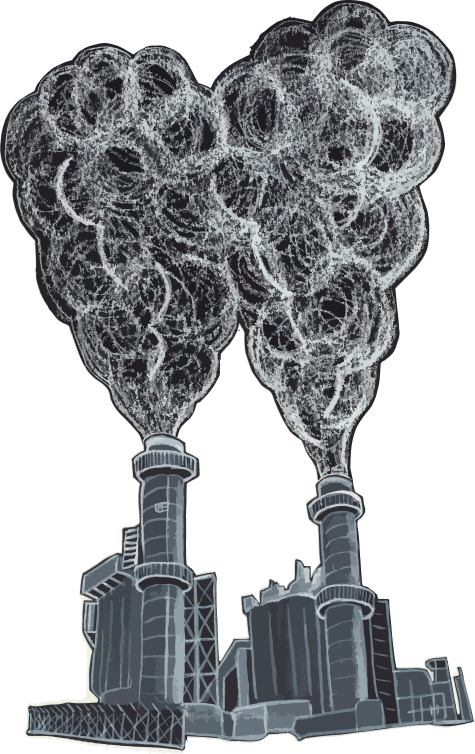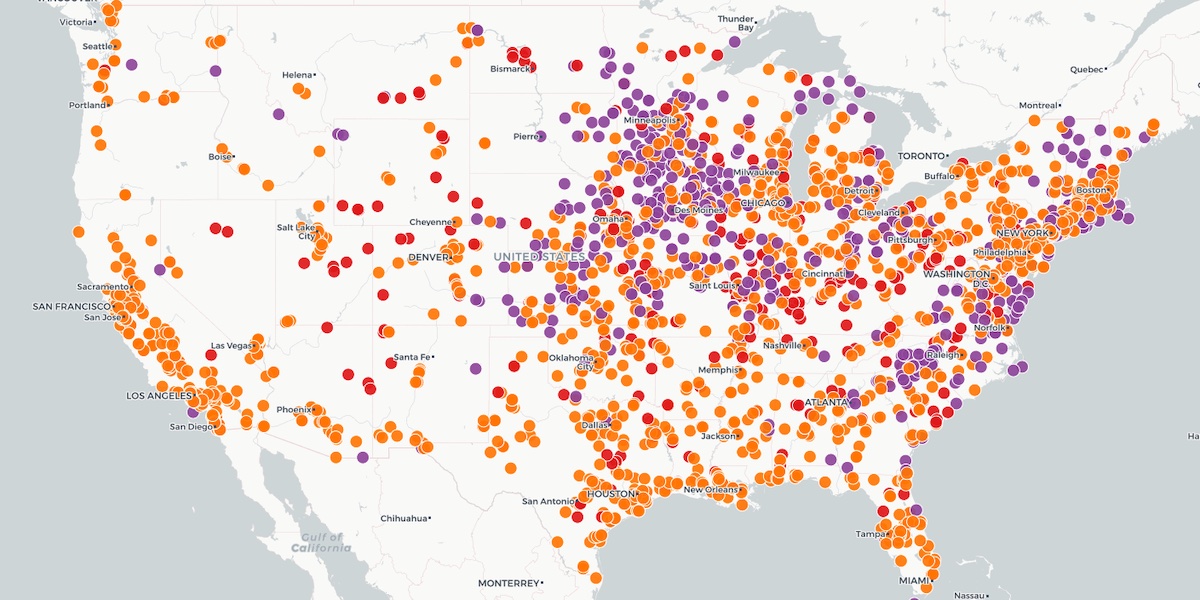New York
Back to mapTo get to zero by 2050, New York must cut climate pollution by
7.3 million metric tons of CO2 equivalent a year.
Emissions in New York
Million metric tons of carbon dioxide equivalent (MMTCO2e) emissions
Note: Grey area indicates missing data due to processing delays.
Source: WRI, Mar 2021
This is how we're going to do it.
Source: WRI, Mar 2021
- Boilers and furnaces with heat pumps
- Gas stoves with induction ranges
- No-till farming to keep CO2 in the soil
- Capturing methane leaks from landfills
- Capturing CO2 to make emissions-free concrete
- Burning green hydrogen to make emissions-free steel
- Plugging methane leaks from gas pipelines
Decarbonize Our Buildings
30% of New York's climate pollution comes from buildings.
We burn fossil fuels to heat our air, water, and food.
To cut this pollution...
Let's electrify our heat!
We'll replace...
...in all of New York's 5.0 million buildings.
In fact, 19% of buildings in New York are already fossil fuel free!
That means we only need to electrify the remaining 4.0 million dirty buildings in New York. That's around 144,000 per year.
Source: Microsoft, Mar 2021; NREL, Dec 2021Electrifying all buildings cuts 30% of the pollution.
Decarbonize Our Transport
38% of New York's pollution comes from cars, trucks, trains, and planes.
But mostly from cars.
To cut this pollution,
your next car must be electric.
Or consider going car-free with public transit, bikes/e-bikes, car share, or other alternatives!
There are 4.2 million vehicles in New York and 33,000 are already electric (0.8% of the total).
We need to electrify (or replace) the remaining 4.2 million gas-powered vehicles. That's around 151,000 a year.
Source: DOT, Feb 2021Electrifying all transportation cuts 38% of the pollution.
Decarbonize Our Power
12% of New York's pollution comes from burning coal, gas, and oil to make power.

To cut this pollution...
Put solar panels on your roof!
Then, we'll replace all fossil fuel power plants with solar and wind farms.

...and find good jobs for those workers.
Current Fossil Fuel Power Plants in New York
2 coal plants
Somerset Operating Company (Kintigh)
Niagara County
655 MW
Cayuga Operating Company, LLC
Tompkins County
323 MW
94 gas plants
Ravenswood Generating Station
Queens County
2,957 MW
Bowline Generating Station
Rockland County
1,992 MW
Northport
Suffolk County
1,564 MW
Astoria Generating Station
Queens County
1,345 MW
55 oil plants
Oswego Harbor Power
Oswego County
1,896 MW
Roseton Generating LLC
Orange County
1,242 MW
Gowanus Generating Station
Kings County
733 MW
Holtsville Facility
Suffolk County
567 MW
But wait!
It's not enough to replace our power plants with wind and solar farms.
To power our electric cars and buildings, we need two times the electricity we have today.
In all, we'll need to build 16,000 Megawatts of wind power and 13,000 Megawatts of solar power.
Since New York already has 501 Megawatts of wind and 448 Megawatts of solar, that's 13,000 Megawatts of wind power we need to build and 13,000 Megawatts of solar power. That's around 549 Megawatts of wind power and 450 Megawatts of solar power a year.
Source: EIA, Apr 2022Decarbonizing all dirty power cuts 12% of the pollution.
And gives us zero-emissions power we need to eliminate pollution from buildings and cars!
Other Emissions
The last 21% of New York's climate pollution comes from other sources...
This includes farming, landfills, industry, and leaks from gas pipelines.
There's no one solution to solve these problems, but there are lots of great ideas:
Ready to do your part?
Learn how to electrify your own machines and pass local policy to electrify the rest
Take Action